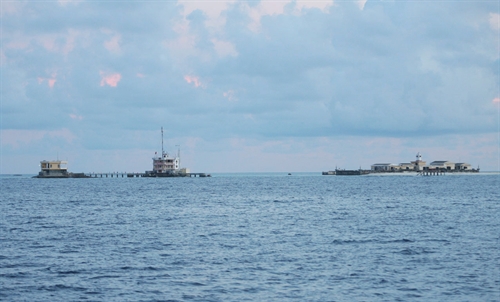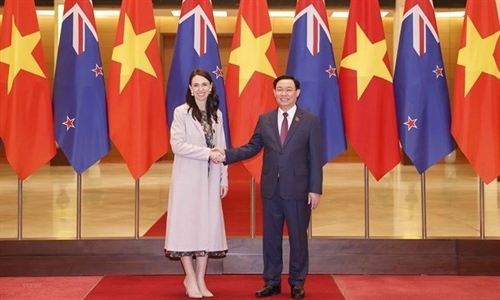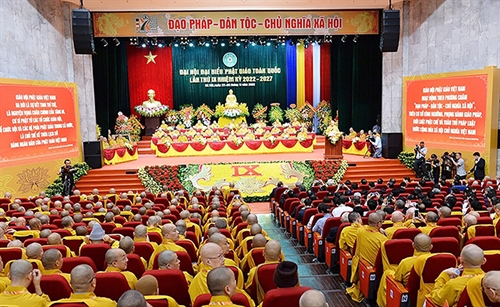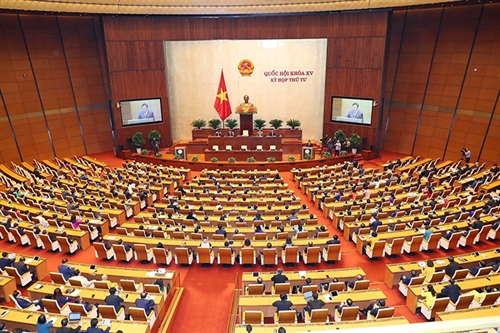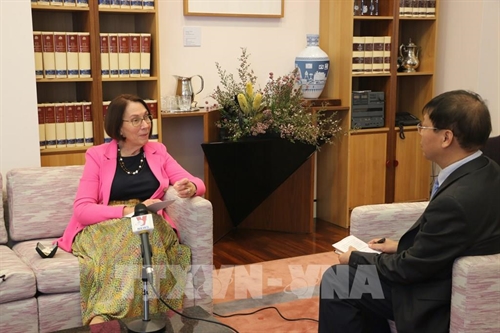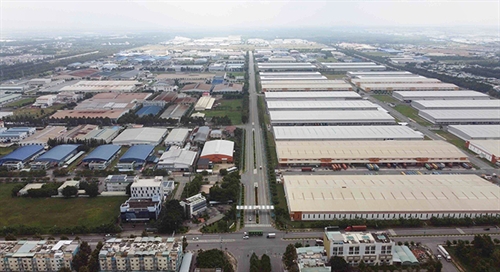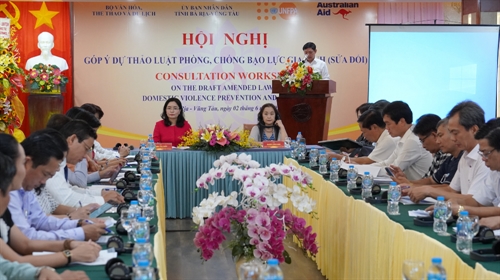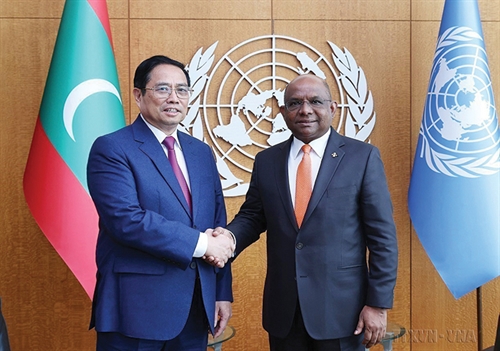Law on the Mobile Police Force
Composed of 33 articles, the Law defines the position, functions, tasks, powers, organization and operation of the Mobile Police force.
As per the Law, the Mobile Police is the people’s armed force of the Vietnam People’s Public Security Forces, the core force in implementing armed measures to protect national security and ensure social order and safety.
The organizational system of the Mobile Police consists of the Mobile Police Command and Mobile Police divisions under provincial-level Police Departments.
The Law specifies nine groups of tasks and seven groups of powers of the Mobile Police force.
Noticeably, the Law allows Mobile Police officers to carry along weapons, explosives, support tools and other professional technical devices to airports and on board civil flights to perform their tasks.
In case it is necessary to enter headquarters of diplomatic missions, foreign consulates, representative offices of international organizations or domiciles of staff members of these agencies in Vietnam for combating terrorism or rescuing hostages, the Mobile Police force must comply with Vietnam’s law and treaties to which Vietnam is a contracting party.
The Law will supersede the Ordinance on the Mobile Police Force issued in 2013.
For reading the full text of the Law, please refer to the Official Gazette, issues 73-75 of 2022.
Law on Cinematography
Replacing the previous version enacted in 2006, the new Law gives a broader definition for film, stating it is a cinematographic work whose content is expressed by sequential moving images or images created by technical and technological equipment, with or without sound and other effects according to the principles of cinematographic language, and recorded on assorted materials by digital technology or other technical devices and disseminated to audiences.
The Law further says that films include feature films, documentaries, science films, animated films, and genre-hybrid films, but do not include video recordings for the purpose of disseminating news on radio or television and in the cyberspace; art performances, video games; video recordings of activities of one or more than one person, depicting actual events or circumstances, and reality programs.
Regarding film dissemination in the cyberspace, the Law allows businesses, non-business units and organizations engaged in film dissemination activities to disseminate films in the cyberspace.
However, before disseminating films, these entities must fully satisfy the conditions on film classification set by the Government. Otherwise, they may request the Ministry of Culture, Sports and Tourism or an agency authorized by the Ministry to perform the classification.
The Law also provides a list of prohibited contents in cinematographic activities, such as those violating Vietnam’s Constitution and laws, harming the national unity, infringing upon national interests and cultural values, misrepresenting national history, supporting terrorism and extremism, insulting beliefs and religions, inciting violence or criminal acts, or infringing upon the rights and interests of minors, etc.
The English translation of the Law is published on the Official Gazette, issues 73-75 of 2022.
Law on Insurance Business
Composed of 157 articles, the Law will supersede the 2000 version and its revisions made in 2010 and 2019.
The Law specifies five types of insurance contracts, namely life insurance contract, health insurance contract, property insurance contract, damage and loss insurance contract, and liability insurance contract.
Previously, three types of insurance contracts include human insurance contract, property insurance contract, and civil liability insurance contract.
Notably, as for life insurance and health insurance, after signing contracts with a term longer than one year, the insurance buyer may, within 21 days from the date of receipt of the insurance contract, refuse to continue participating in insurance. In this case, the insurance contract will be canceled and the insurance buyer will be refunded the paid premium after deducting reasonable expenses (if any) as agreed in the contract. Meanwhile, the insurance enterprise is not required to compensate or pay insurance premiums when the insured event occurs.
In addition, the Law allows foreign investors to hold up to 100 percent of the charter capital of an insurance enterprise or a reinsurance enterprise. The law also stipulates that foreign non-life insurance enterprises and their branches may only deal in life insurance, non-life insurance or health insurance, except the following cases:
(i) Non-life insurance companies conducting health insurance business;
(ii) Foreign non-life insurance enterprises and branches thereof trading in health insurance products and casualty insurance products with a term of up to one year; and,
(iii) Health insurance companies trading dealing in casualty insurance with a term of up to one year.
The Law’s English text is available on the Official Gazette, issues 79-84 of 2022.
Law Amending a Number of Articles of the Law on Intellectual Property
The Law introduces new definitions of author, joint authors, technology measures for rights protection, effective technology measures, rights management information, and communication to the public; and revises some others.
It also simplifies the procedures for registration of copyright, related rights and industrial property rights. Specifically, requests for establishment of copyright, related rights and industrial property rights can be hand-delivered, sent by post or submitted electronically via the online public service portal to the competent state agency. The previous law requires applications to be hand-delivered or submitted through a legal intellectual-property representative in Vietnam.
Noticeably, the Law states that the performance of intellectual property rights must neither infringe upon the interests of the State, public interests, and the lawful rights and interests of organizations and individuals nor violate other relevant regulations. Organizations and individuals exercising intellectual property rights related to the National Flag, National Emblem and National Anthem of the Socialist Republic of Vietnam may not prevent or obstruct the dissemination and use of the National Flag, Emblem and Anthem.
The English translation of the Law is available on the Official Gazette, issues 76-78 of 2022.- (VLLF)
